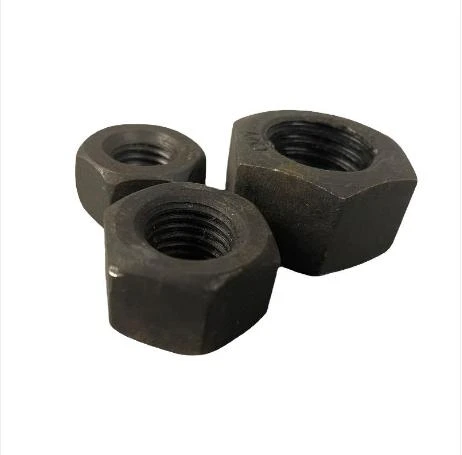

Hot Dipped Screws for Superior Corrosion Resistance and Durability in Construction Projects
Nov . 18, 2024 05:17 Back to list
Hot Dipped Screws for Superior Corrosion Resistance and Durability in Construction Projects
Understanding Hot Dipped Screws Advantages and Applications
Hot dipped screws have become a popular choice in various industries due to their exceptional durability and corrosion resistance. This article explores the benefits, manufacturing processes, and applications of hot dipped screws, shedding light on why they are essential in both commercial and residential construction.
What are Hot Dipped Screws?
Hot dipped screws are fasteners that undergo a coating process known as hot-dip galvanization. During this process, screws made from steel or iron are submerged in molten zinc, creating a protective barrier against rust and environmental factors. The result is a strong, durable screw that maintains its integrity over time, even in harsh conditions.
Advantages of Hot Dipped Screws
1. Corrosion Resistance The primary benefit of hot dipped screws lies in their superior corrosion resistance. The thick coat of zinc forms a protective layer that prevents moisture and other corrosive elements from reaching the metal underneath. This is particularly important in outdoor applications where screws are exposed to rain, snow, and humidity.
2. Longevity Because of their durability, hot dipped screws have a longer lifespan compared to their non-galvanized counterparts. This longevity translates to less frequent replacements and lower maintenance costs, making them a cost-effective solution in the long run.
3. Strong Adhesion The hot-dip galvanization process ensures that the zinc coating adheres strongly to the screw. This bond is significantly stronger than other forms of galvanization, ensuring that the protective coating won’t easily chip or peel, even under stress or impact.
4. Environmentally Friendly Zinc is a natural element, making hot dipped screws a more environmentally friendly option compared to screws coated with synthetic materials. Additionally, the long service life of these screws contributes to waste reduction in construction projects.
5. Versatility Hot dipped screws are available in various sizes and types, including wood screws, sheet metal screws, and lag screws. This versatility allows them to be used in a wide range of applications, from framing and roofing to decking and fencing.
Manufacturing Process
The manufacturing of hot dipped screws involves several key steps
hot dipped screws

1. Preparation The process begins with cleaning the screws to remove any oils, dirt, or rust. This step is crucial as it ensures proper adhesion of the zinc coating.
2. Hot-Dip Galvanization After cleaning, the screws are dipped into a bath of molten zinc at temperatures around 450°C (842°F). The screws are submerged for a specific duration to allow the zinc to coat the surfaces thoroughly.
3. Cooling and Inspection Once the screws exit the zinc bath, they are cooled either naturally or through forced air. This cooling process solidifies the zinc coating. Following this, each screw is inspected for quality, ensuring that the coating is evenly applied and free of defects.
4. Packaging Finally, the screws are sorted, packaged, and prepared for shipping to manufacturers and retailers.
Applications of Hot Dipped Screws
Hot dipped screws are utilized across various sectors, including
- Construction They are widely used in residential and commercial construction for their strength and corrosion resistance. Areas exposed to moisture, such as roofing, siding, and decking, are particularly well-suited for hot dipped screws.
- Furniture Manufacturing Hot dipped screws are also popular in the furniture industry, especially for outdoor furniture, where durability is essential for longevity.
- Electrical Applications Many electrical installations require fasteners that can resist corrosion due to exposure to elements. Hot dipped screws are an ideal choice in these situations as they provide both strength and protection.
- Agriculture In agricultural settings, hot dipped screws are often used in the construction of barns, fences, and other structures where exposure to harsh weather is a concern.
Conclusion
In conclusion, hot dipped screws are an essential fastener choice for a variety of applications due to their robustness and resistance to corrosion. With their long lifespan, versatility, and environmental benefits, they stand out as a preferred option in construction, manufacturing, and other industries. As technology and methodologies continue to advance, the demand for hot dipped screws is likely to grow, affirming their important role in modern construction and design.
Latest news
-
Hot Dip Galvanized Bolts-Hebei Longze Metal Products|Corrosion Resistance&High Strength
NewsJul.31,2025
-
Hot Dip Galvanized Bolts-About LongZe|High Strength, Corrosion Resistance
NewsJul.30,2025
-
High-Strength Hot Dip Galvanized Bolts - Hebei Longze | Corrosion Resistance, Customization
NewsJul.30,2025
-
Hot Dip Galvanized Bolts-Hebei Longze|Corrosion Resistance&High Strength
NewsJul.30,2025
-
High-Strength Hot-Dip Galvanized Bolts-Hebei Longze|Corrosion Resistance&High Strength
NewsJul.30,2025
-
Hot Dip Galvanized Bolts-Hebei Longze|Corrosion Resistance&High Strength
NewsJul.30,2025

